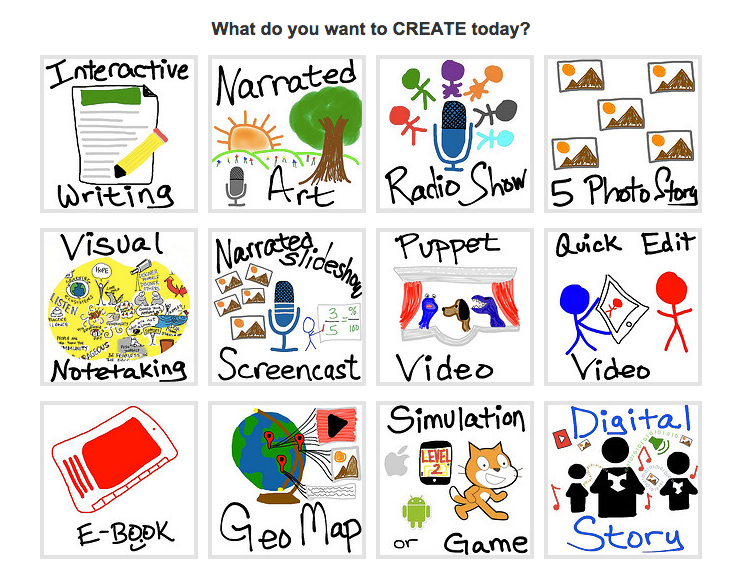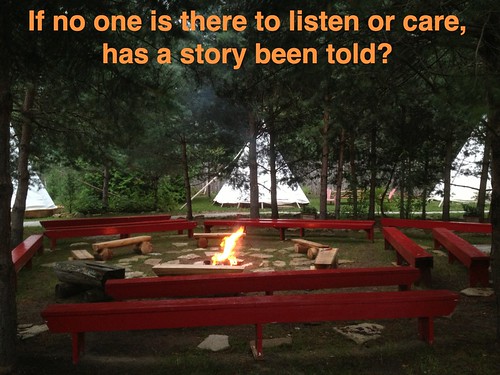More Thoughts on Digital Storytelling
Yesterday I tweeted that I wanted to get back in the ds106 playground.

Last week in the Fall 2013 Headless Course for ds106 the current participants explored what digital storytelling actually is. You would think that participants in a course called Digital Storytelling 106 would know! Having dropped in on the course a few times over the last couple of years, I thought that it shouldn’t be too challenging to come up with a definition of my own:
Sto-ry-tel-ling
noun
a purposeful retelling of information
Storytelling could be for entertainment, it could be to teach something, it could be real, it could be something that is made up. As long as you are retelling something for a reason (regardless of what that reason might be) then you are telling a story.
I further defined it for myself by remembering that storytelling could be done through any medium. A photograph or a work of art can provide some sort of sharing of information for a purpose. A website can provide some sort of information for a purpose. A poster can provide visual information for a purpose. A song can provide sonic information for a purpose. These all seem to be examples of storytelling.

It all seemed to make sense to me. But then I started to wonder…
How important is audience engagement is to the definition of storytelling?
Is it necessary that the story elicit some sort of response within or from the observer/ listener to be considered a story? Or does that just make it a better story? Like the old adage, if tree falls in the forest and no one hears it or no one cares, has it’s story actually actually been told?


Is Anybody Out There? by Lara Jensen is licensed under a Creative Commons Attribution-NonCommercial-NoDerivs 3.0 Unported License. Photo taken at Great Spirit Circle Trail Manitoulin Island, Ontario
I looked at some of the resources on the ds106 page and learned that according to Paul Zak in The Future of Storytelling that stories have the power to connect us to others around us by changing our brain chemistry! Distress and empathy triggered in our brains by stories can make us behave differently “in real life”.
According to a Lifehacker article (The Science of Storytelling: Why Telling a Story is the most Powerful Way to Activate Our Brains) by Leo Widrich, when we experience stories our brains try to connect this new information with what we know from previous experiences. The article claims that we are hardwired for stories to understand cause and effect.

This all makes me wonder: If a series of bullet points on a slide cannot be remembered for the point they were trying to make, has a story been told? And…
If:
digital storytelling is the purposeful sharing of information to elicit a response from others using an electronic medium
Then:
when no one reacts to a blog post it’s hard for the blogger to know if a story has actually been told…
Comments?
even if nobody comments on your post, there is always somebody who hears the stories you tell: you yourself 🙂 I tell my stories to gain insight, and that happens in the crafting of it as well as in the sharing of it. Yet, there is something unique about a story told to somebody other than ourselves. Interesting questions raised. Thank you. #talkingheadless106
True enough – I often tell stories to clarify my own thinking!